When people start living in rural areas and getting involved in farming, it’s important to know the difference between two common approaches: hobby farm vs homestead.
Are hobby farm and homestead the same? The answer is No.
Before you start your own farm work, it’s crucial to understand these two terms and how they are different. Keep reading to find out!
What Is a Hobby Farm?
A hobby farm is a small-scale farm run for pleasure, entertainment, or extra income, with no intention of becoming self-sufficient.
These farms typically range in size from a few acres, like only 10 acres or less. It depends on the farming activities, resources and personal preference.
Hobby farms include a wide range of activities such as gardening, animal raising, and even beekeeping.
While hobby farms may earn some money by selling produce or products, their primary focus is the enjoyment of working on the land.
The distinction between hobby farms and homesteads can be unclear, as a hobby farm can be considered a homestead if it emphasizes self-sufficiency by individuals.
Pros and Cons of Hobby Farming
Pros:
- Hobby farming can be fun and relaxing. It’s like having a big garden where you grow things or taking care of some animals.
- Hobby farms can sometimes make a bit of money, especially if you sell extra vegetables or eggs. You might not make a lot, but it can help.
- You don’t need a huge amount of land for a hobby farm. A few acres can be enough to start with, and you can do many things, like having a garden or a few animals. It’s a way to spend time outside and enjoy nature.
Cons:
- Hobby farming also has some challenges. It takes time and effort. You need to take care of plants and animals regularly, and sometimes it can be hard work.
- While you might make some money, it’s not like a full-time job. It’s more for the joy of doing it. If you’re looking to make a big income, a hobby farm might not be enough.
- Sometimes, you might face unexpected problems like bad weather affecting your crops or health issues with your animals. It can be stressful when things don’t go as planned.
In conclusion, hobby farming is great if you enjoy nature, like spending time outdoors, and don’t mind some hard work. However, it might not be the best choice if you’re looking for a big income or want something less time-consuming.
What Is a Homestead?
A homestead is a self-sufficient and sustainable farm where the people who live there grow their own food, raise their own livestock, and work to meet their basic needs. It sounds like a DIY lifestyle.
A homestead’s main goal is usually to provide for the needs of the family, but some do make money by selling extra items. This could be selling vegetables, eggs, or handmade items.
Homesteads need more land than hobby farms, often ranging from several acres to larger plots. This allows you to do more things like growing orchards, raising larger animal herds, and sustainable forestry practices.
Homesteading is good because it helps you be more independent, but it also needs a lot of time and work.
Pros and Cons of Homestead
Pros
- Homesteading is like a DIY lifestyle. You get to do a bit of everything, from growing your own food to making things.
- A homestead can be a great way to be more self-sufficient. You’re not relying on others as much because you’re producing your own food and maybe even your own energy.
- Homesteads often have a stronger connection to nature. You live closer to the land, and that can be rewarding. Fresh air, open spaces, and a simpler life are some of the perks.
Cons
- Homesteading is a full-time commitment. There’s always something to do, and it might take you a lot of time to take care of the plants and livestock.
- While you might save money by growing your own food, setting up a homestead can be expensive initially. Building things like a barn or setting up solar power can require a significant investment.
- Many homesteads are set up in more remote areas. This means that you are far from town or other conveniences.
In summary, homesteading offers a unique, hands-on lifestyle where you can be more self-sufficient. However, it requires a lot of time, effort, and initial investment.
Before starting a homestead, you should consider whether the rewards align with your preferences and priorities.
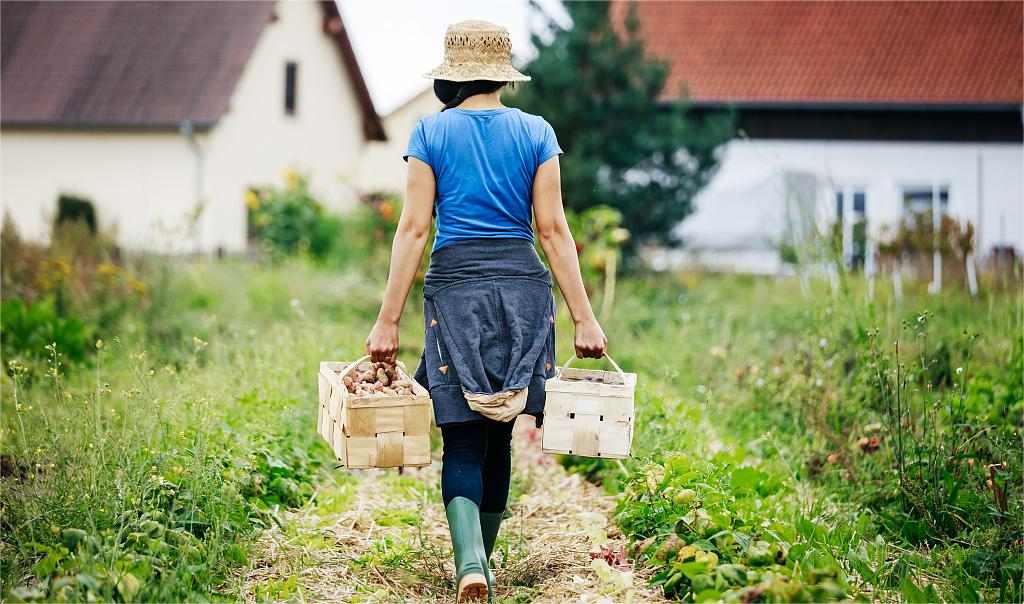
The Differences Between Hobby Farm Vs Homestead
Definition
Hobby Farms: People run hobby farms for the joy of it, not necessarily as a primary goal of self-sufficience or income.
Homestead: It is a self-sufficient and hands-on lifestyle and people intend to grow their own food to meet daily needs.
Purposes and Scale
Hobby farms are often smaller in scale. People might have a few animals, grow some veggies, or keep bees. The primary purpose is enjoyment and personal fulfillment.
Homesteads are often more extensive and aim for self-sufficiency. People on homesteads usually produce a significant portion of their food and might even generate energy.
Income Generation
While hobby farms can generate some income through selling produce or handmade goods, they usually don’t aim to replace a full-time job. The financial aspect is more about covering costs than making substantial profits.
Homesteads don’t usually sell produce for extra income. The focus is on reducing dependency on external resources rather than making profits.
Involvement
Individuals who have hobby farms often have other jobs or responsibilities. The farming activities might be more seasonal or weekend-oriented.
Homesteading requires a full-time commitment. People who live on homesteads are fully engaged in daily tasks, such as taking care of animals and cultivating crops.
Location
Hobby farms can be in various locations, including suburban areas. They might not be as secluded as homesteads, often integrating into a more urban or semi-rural setting.
Homestead is typically in more rural or remote areas, and it has a much closer connection to nature. The goal is to create a sustainable, integrated living environment.
Hobby Farm Vs Homestead: Tax Implications
Now, let’s talk about everyone’s concerned topic – taxes. Are there any legal or tax things you need to know when you’re running a hobby farm or a homestead?
Let’s break it down without diving too deep into the complicated stuff.
Is There Any Tax For Hobby Farms?
For your hobby farm, since you’re not turning it into a big moneymaker, the tax implications are usually less intense.
You might be lucky because some expenses related to your hobby farm could be tax-deductible. Think about those seeds, tools, or even the cute little shed you got for your gardening gear.
If you’re making some extra cash by selling a bit of produce or handmade goods, you will need to report those income values on your taxes.
Is There Any Tax For Homesteads?
For homestead, even if you’re aiming for more self-sufficiency, there are still a few things to keep in mind:
In some places, you might be eligible for agricultural exemptions, which can reduce your property taxes. It’s like a little reward for contributing to the green side of life.
If your homestead is starting to look more like a business, the tax game could change. Selling a substantial amount of produce or products might mean you need to keep a record of your income and report them on taxes.
If you find that things are a bit complex, it is better to consult a tax professional. They can guide you through the specifics based on your location and situation.
Wrapping Up
We hope that from this article, you have learned more things about hobby farm vs homestead. It is not easy to start farm work as you will need to prepare for the right equipment and knowledge, such as land, fencing, plants and livestock, watering equipment and farmer boots.
Whether to start a hobby farm or homestead, depends on your lifestyle, goals, and how deep you want to dive into the world of farming. And, the most important thing is to enjoy the farming journey and you will feel what is just right for you. Happy Farming!
Related Posts:
What are the Benefits of Wearing Farm Boots
What Kind of Farm Boots to Wear on the Farm
A Detailed Review of Kalkal Rubber Farm Boots


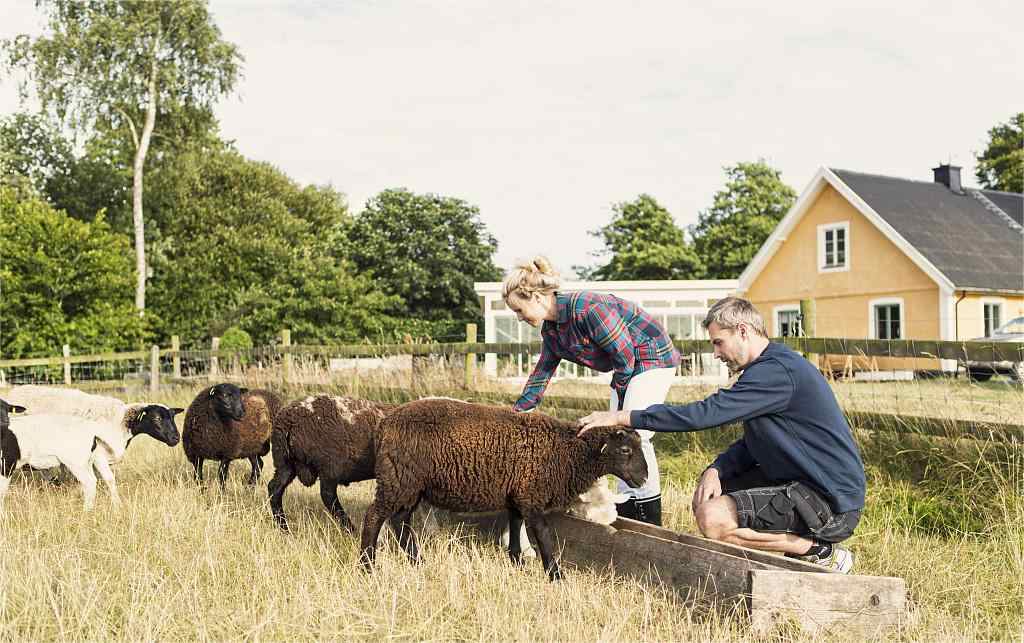
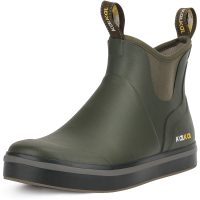








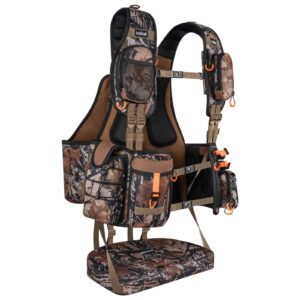
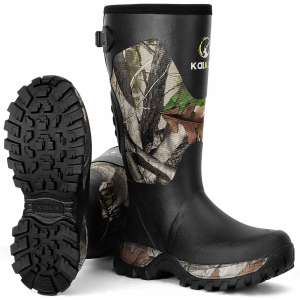
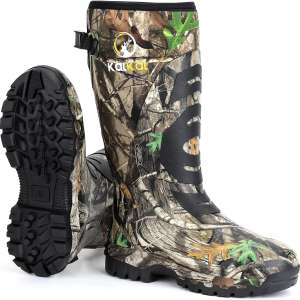
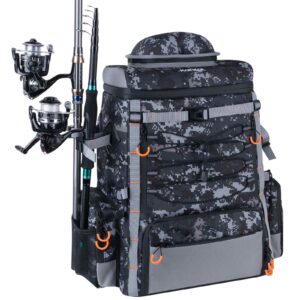
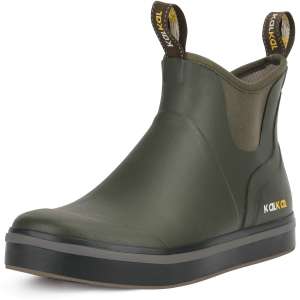


Leave a reply